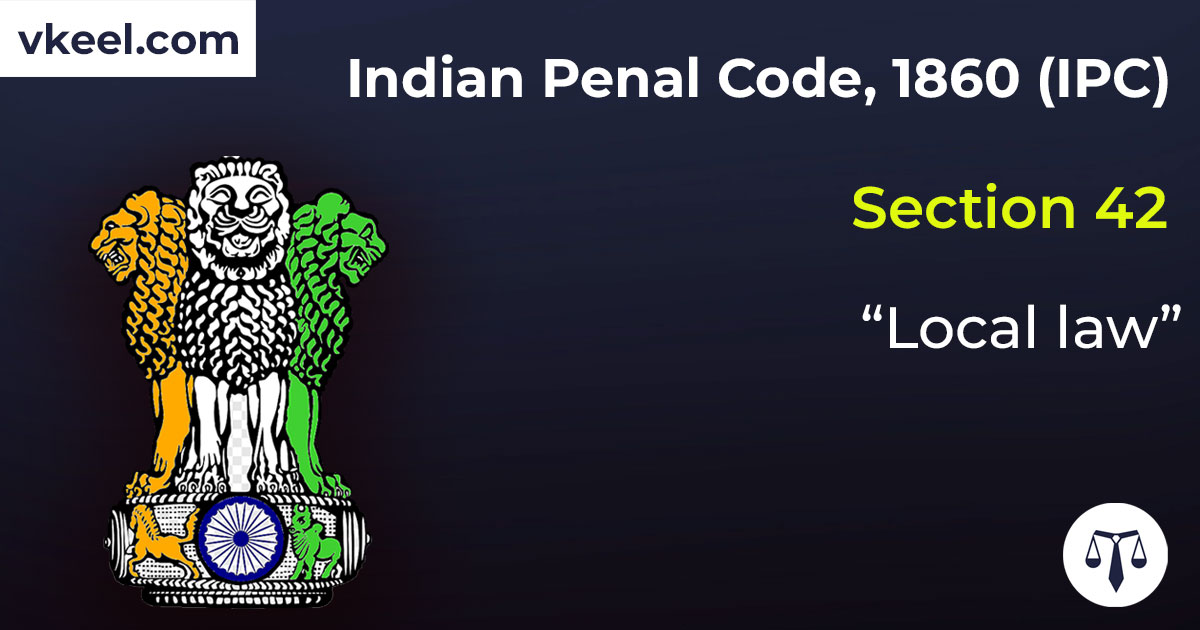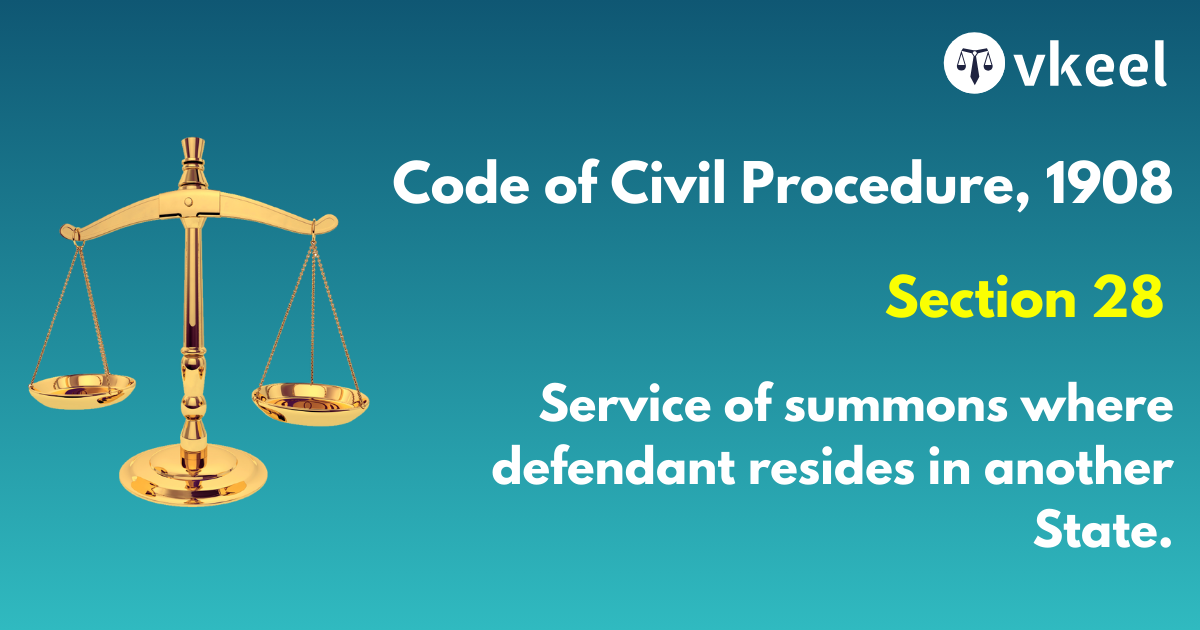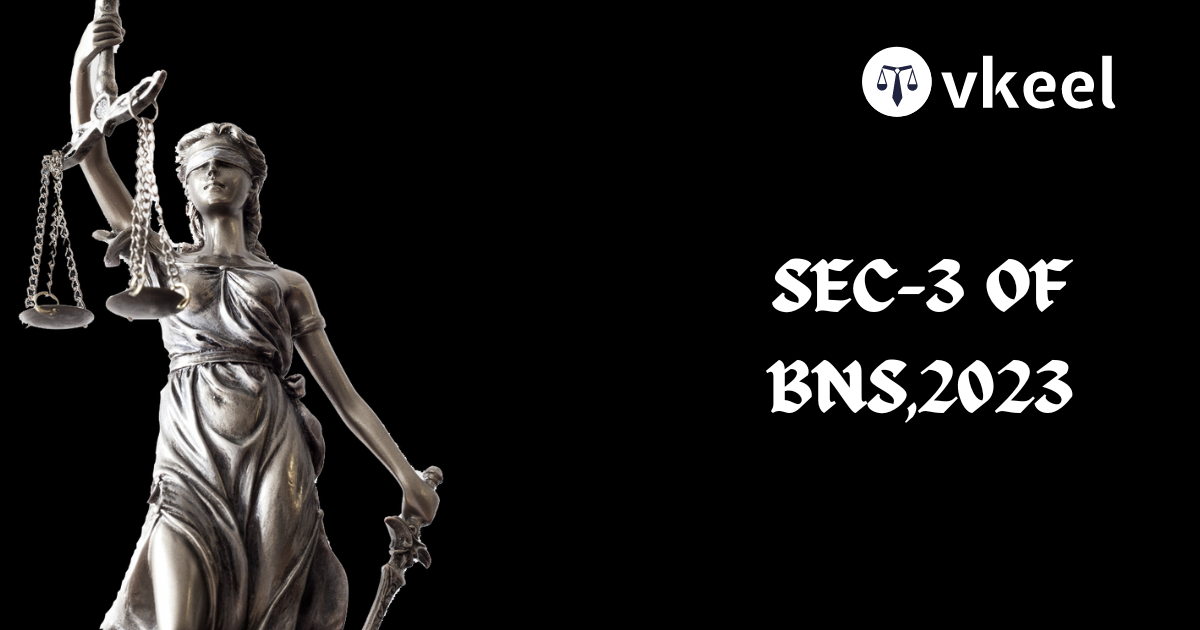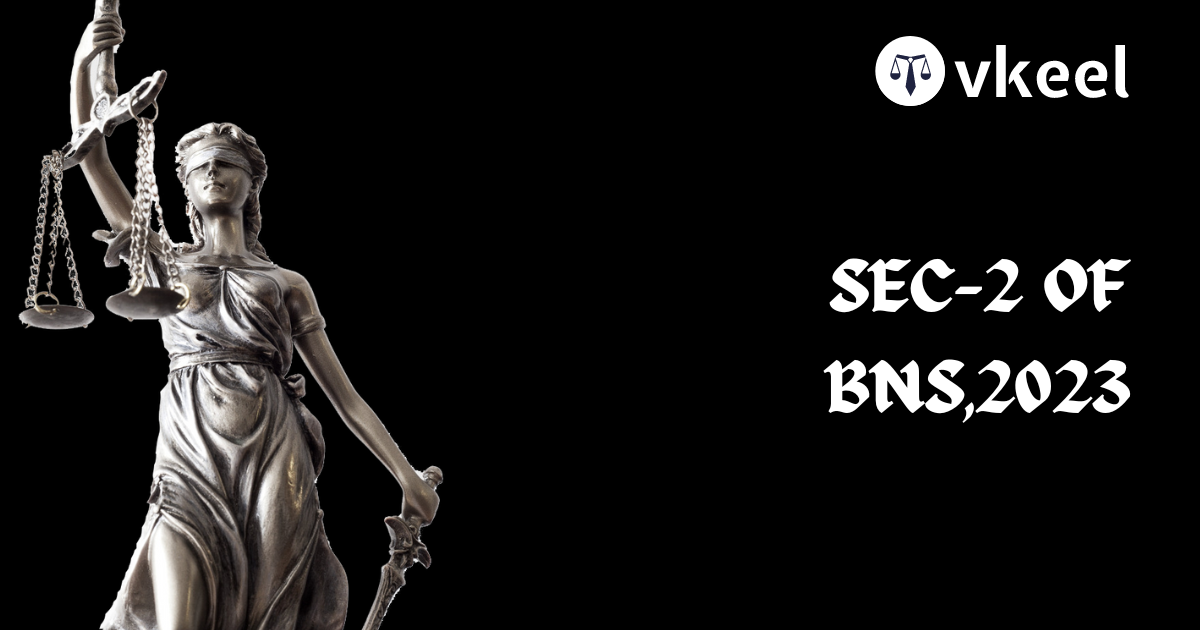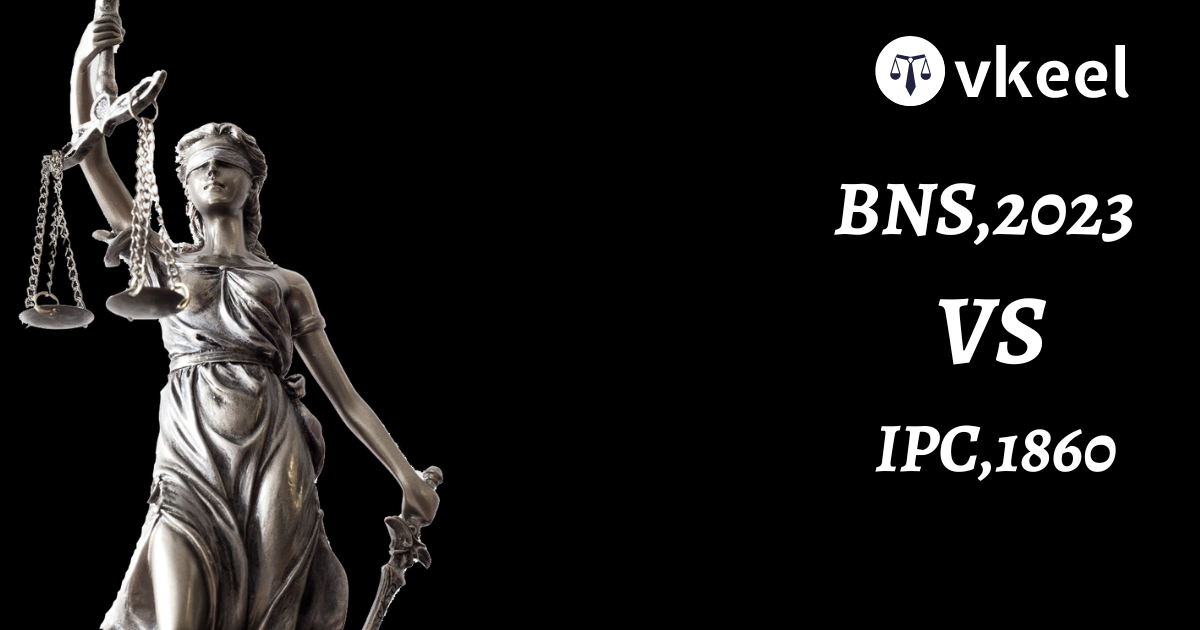Section 42 Indian Penal Code 1860 (IPC) – “Local law”
By Vkeel Team
Table of Contents
Description
“Section 42 Indian Penal Code 1860 (IPC)”
A “local law” is a law applicable only to a particular part of 1 [ 2 ***3 [India]].
Understanding Section 42
Section 42 of the IPC addresses the applicability of the local law in cases where an act is an offense under two or more enactments. The section reads as follows:
“When an act is an offense by reason of anything which has been done and of a consequence which has ensued, the offender shall not be punished with the punishment provided for the offense, if the thing done was lawful under any enactment, and the offender had a right to do it, and had done it in the execution of his duty as a public servant or other lawful authority, and in doing what he did, he had acted in good faith.”
Key Elements of Section 42
To better understand the essence of Section 42, let’s examine its essential elements:
- Lawful under any enactment – The act committed must be lawful under at least one existing law or statute. If the act is illegal under all enactments, Section 42 does not provide any protection.
- Right to do it – The person performing the act must have the legal right or authority to carry it out. This requirement ensures that the act is performed within the boundaries of permissible authority.
- Execution of duty – The act must be done in the execution of the offender’s duty as a public servant or under some other lawful authority. This element recognizes that certain acts, which may otherwise be offenses, may be justified when performed in the discharge of official duties.
- Good faith – The offender should have acted in good faith, genuinely believing that their actions were lawful and necessary in the given circumstances. This element guards against the misuse of Section 42 to shield individuals who act with mala fide intentions.
Application and Interpretation
Section 42 acts as a shield against criminal prosecution for acts that are otherwise offenses under multiple laws. It is commonly applied in situations where a public servant or an individual acting under lawful authority, in good faith, performs an act that results in unintended consequences.
The provision grants protection when the act falls within the framework of lawful authority. It ensures that public servants are not unduly restrained in the execution of their duties and that individuals acting under lawful authority are not penalized for well-intentioned actions.
Section 42’s wide-ranging application is evident in various scenarios, such as police actions during public disturbances, defense personnel operating in conflict zones, and emergency service providers responding to crises. It serves as a safeguard, protecting those who act with bona fide intentions while discharging their lawful duties.
Notable Case Law
Over the years, Indian courts have dealt with several cases related to Section 42, providing valuable insights into its interpretation and application. One prominent case is the State of Maharashtra v. Mohd. Yakub, where the Supreme Court held that Section 42 is not a substantive provision, but a defense available to the accused.
The court emphasized that Section 42 cannot be invoked as a standalone provision to exonerate an offender. It only provides a defense if the accused meets all the prerequisites outlined in the section, ensuring that their actions were lawful, within their authority, and performed in good faith.
Conclusion
Section 42 of the Indian Penal Code plays a crucial role in defining the scope and application of “local law.” It provides a safeguard for public servants and individuals acting under lawful authority, ensuring that their well-intentioned actions, which may otherwise be offenses, do not result in criminal prosecution.
Understanding the key elements of Section 42 helps us appreciate its underlying principles. The provision strikes a balance between maintaining law and order and protecting individuals who act in good faith within their prescribed duties.
As the legal landscape evolves, the courts’ interpretations and judgments will continue to shape the application of Section 42. Its careful implementation serves as a testament to the Indian legal system’s commitment to fairness and justice, enabling public servants and individuals to discharge their duties with confidence and accountability.
1. Subs. by the A.O. 1948, for “British India”.
2. The words “the territories comprised in” omitted by Act 48 of 1952, s. 3 and the Second Sch.
3. Subs. by Act 3 of 1951, s. 3 and the Sch., for “the States” which had been subs. by the A.O. 1950, for “the Provinces”.
Desctiption Source: indiacode
Disclaimer:
The information provided in the article is for general informational purposes only, and is not intended to constitute legal advice or to be relied upon as a substitute for legal advice. Furthermore, any information contained in the article is not guaranteed to be current, complete or accurate. If you require legal advice or representation, you should contact an attorney or law firm directly. We are not responsible for any damages resulting from any reliance on the content of this website.

